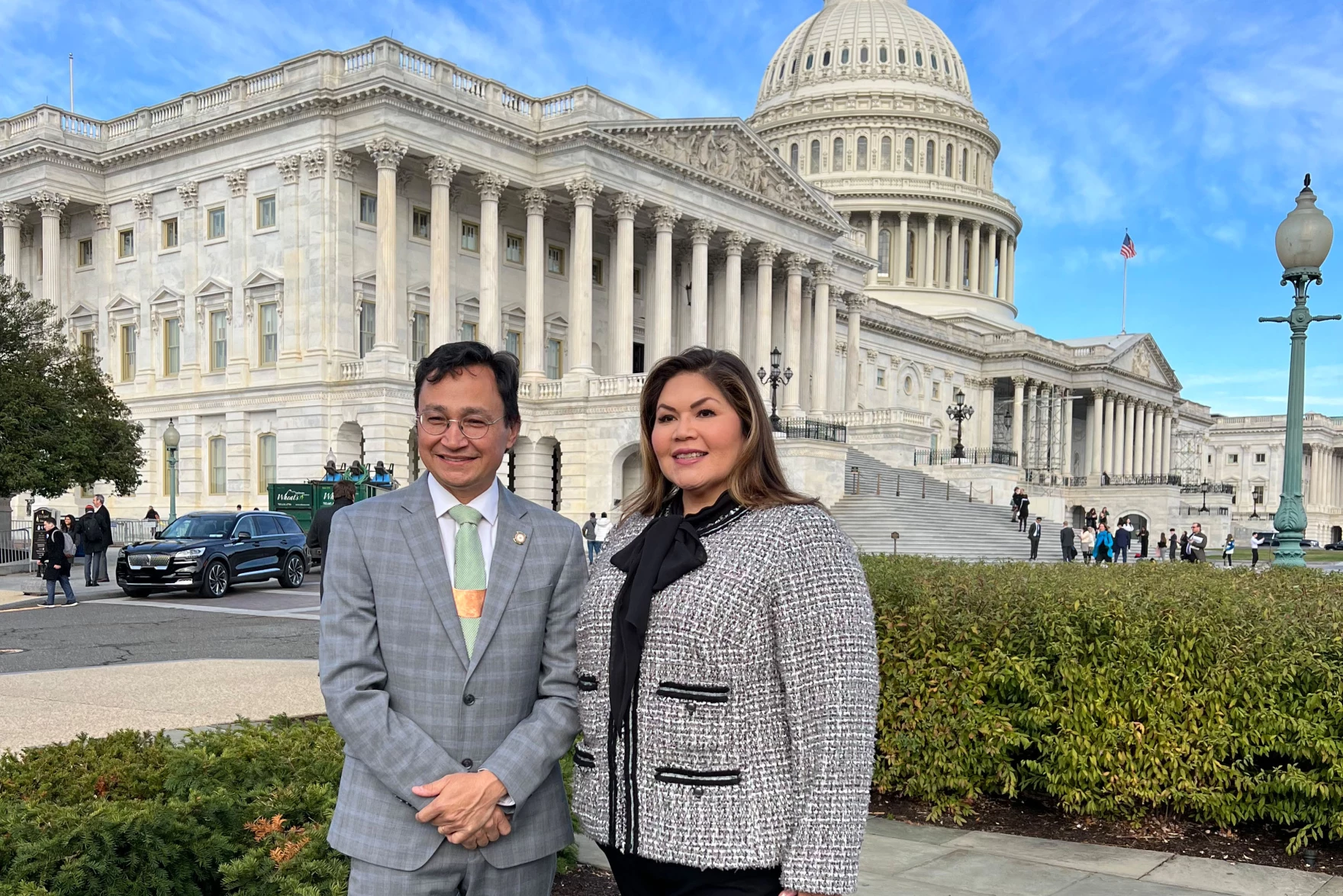
- Details
- By Native News Online Staff
Cherokee Nation Principal Chief Chuck Hoskin, Jr. testified at a House Rules Committee hearing on Nov. 16, 2022, asking members of the Committee to fulfill the 1835 Treaty of New Echota which allows for the seating of a Cherokee delegate to Congress.
After the hearing, Hoskin told Native News Online on a Native Bidaské (Spotlight) he was optimistic because he was able to answer questions ranging from the mechanics of seating a new delegate to why it’s taken the nation 187 years to ask to seat their delegate before members of Congress.
 Make A Donation Here
Make A Donation Here
But that was then – toward the end of the 117th Congress.
With the majority shift from Democratic to Republican things have changed. However, Hoskin remains committed to seeing the Treaty of New Echota fulfilled.
On Monday, Hoskin urged the new House leadership to act on seating the Cherokee Nation delegate to Congress. He sent House Speaker Kevin McCarthy (R-CA) and Minority Leader Hakeem Jeffries (D-NY) the following letter:
“In 1835, the Cherokee Nation and the U.S. government entered into the Treaty of New Echota, an agreement between two nations that was signed into law by President Andrew Jackson and ratified by the U.S, Senate. The Treaty of New Echota stipulates that, in exchange for giving up our ancestral homelands in the southeast United States, the Cherokee Nation will be entitled to a non-voting delegate seat in the U.S. House. Treaties have the force of federal legislation and are part of what the Constitution calls “the Supreme Law of the Land. [Article VI, Clause 2]”
Our ancestors upheld their end of the bargain – after being forced to leave their homes and march to the west, a quarter of our tribe (4,000 men, women and children) died in what history knows today as the Trail of Tears. Yet, nearly two centuries later, the U,S, House still has yet to seat the delegate we were promised. As Principal Chief of the Cherokee Nation, I write to draw your attention to this critical issue and to urge you to seek the Cherokee Nation’s delegate as soon as possible.
Last November, the House Rules Committee held a historic hearing on this issue, with members of both parties expressing their support for this effort. As they know, seating the Cherokee Nation Delegate is not a Republican issue or a Democratic issue. It is a question of whether the United States will live up to the promises it has made throughout history. With our country so divided today, it is critical that Democrats and Republicans in Congress work together whenever possible to deliver results for the people they serve. Seating the Cherokee Nation Delegate is one such issue where Republicans and Democrats can work together.
Thank you for your attention to this matter. I look forward to hearing back from you soon.”
The Cherokee Nation already has selected Kim Teehee, who was nominated by Hoskin and approved by the 17-member Cherokee Nation Tribal Council. Teehee currently oversees the Cherokee Nation’s government relations for the tribe and its business enterprise
More Stories Like This
50 Years of Self-Determination: How a Landmark Act Empowered Tribal Sovereignty and Transformed Federal-Tribal RelationsNavajo Nation Council Members Attend 2025 Diné Action Plan Winter Gathering
Ute Tribe Files Federal Lawsuit Challenging Colorado Parks legislation
NCAI Resolution Condemns “Alligator Alcatraz”
NABS Documents 134 More Survivor Stories, Expands Digital Archive in 2025
Help us defend tribal sovereignty.
At Native News Online, our mission is rooted in telling the stories that strengthen sovereignty and uplift Indigenous voices — not just at year’s end, but every single day.
Because of your generosity last year, we were able to keep our reporters on the ground in tribal communities, at national gatherings and in the halls of Congress — covering the issues that matter most to Indian Country: sovereignty, culture, education, health and economic opportunity.
That support sustained us through a tough year in 2025. Now, as we look to the year ahead, we need your help right now to ensure warrior journalism remains strong — reporting that defends tribal sovereignty, amplifies Native truth, and holds power accountable.
 The stakes couldn't be higher. Your support keeps Native voices heard, Native stories told and Native sovereignty defended.
The stakes couldn't be higher. Your support keeps Native voices heard, Native stories told and Native sovereignty defended.
Stand with Warrior Journalism today.
Levi Rickert (Potawatomi), Editor & Publisher


